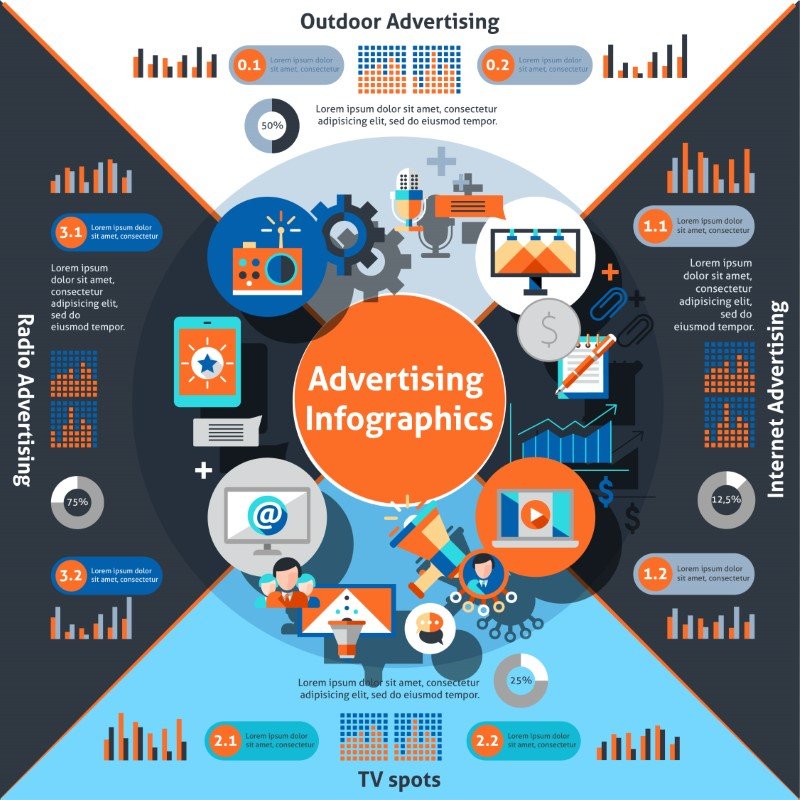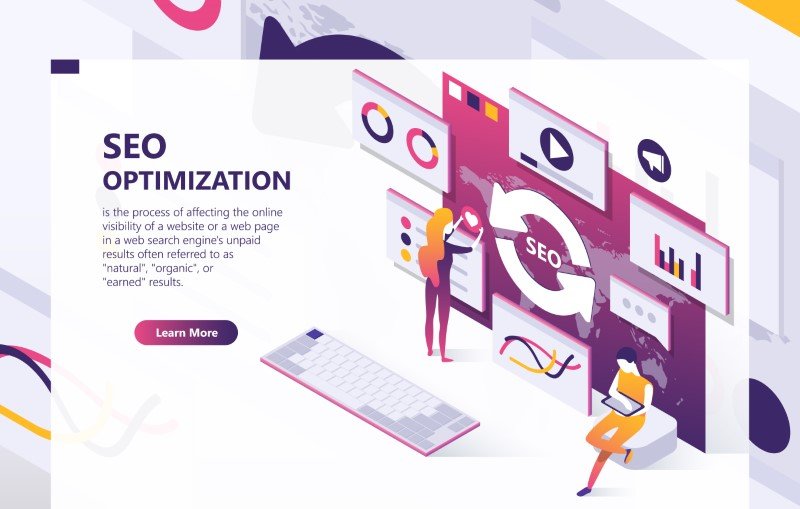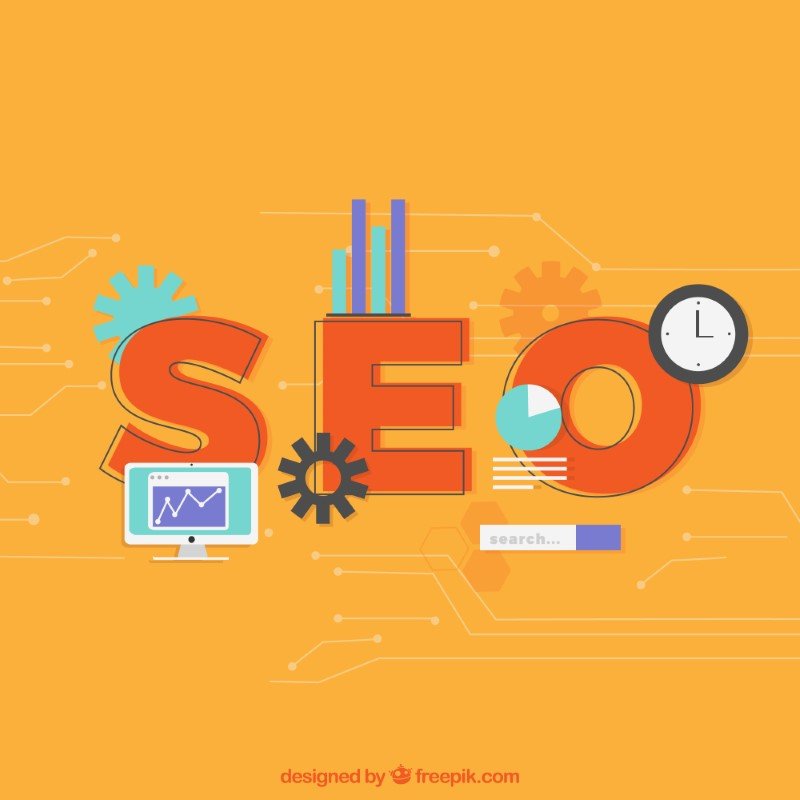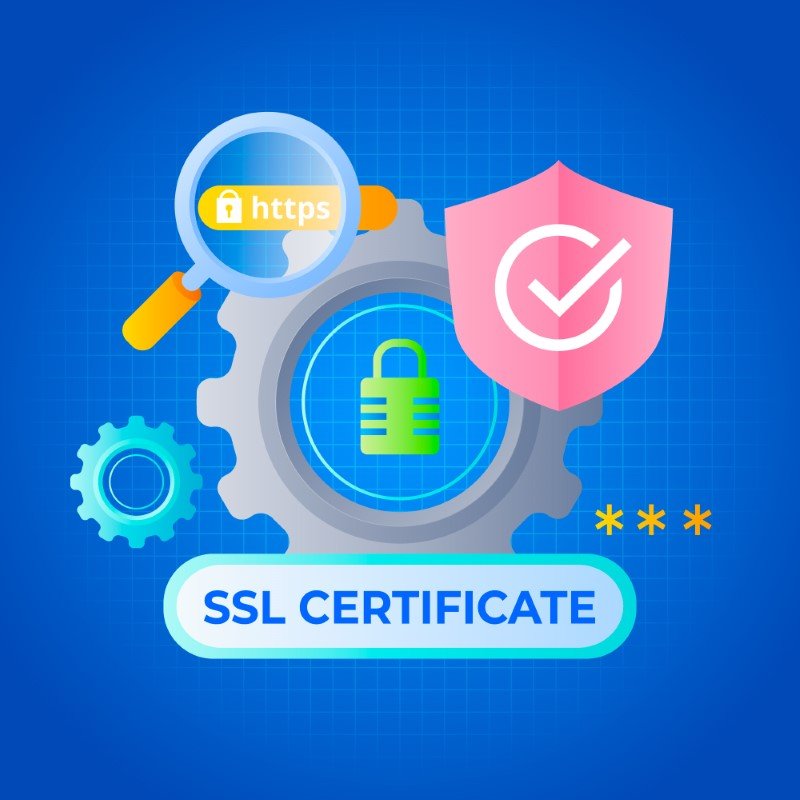In today’s digital age, having a strong online presence is crucial for small businesses to stay competitive and reach their target audience. Offering a wide range of digital marketing services for small business, from search engine optimization (SEO) and website design to social media marketing, content creation, and email marketing, a small business marketing agency can be your ally. As a small business owner, navigating the ever-evolving digital landscape can be daunting, but with the right online marketing companies for small business, you can achieve your goals.
This article will guide you through the top digital marketing services for small businesses in 2024, including web design, content strategy, lead generation, and competitive analysis, among others. We’ll explore how these services can help you attract and retain customers, build brand awareness, and ultimately drive growth for your business. Whether you’re just starting out or looking to revamp your digital strategy, this comprehensive guide will provide valuable insights and actionable tips to help you make informed decisions and maximize your marketing budget.

Table of Contents
Understanding Digital Marketing for Small Businesses
Importance of Digital Marketing for Small Businesses
In today’s digital age, having a strong online presence is crucial for small businesses to stay competitive and reach their target audience. Digital marketing offers a wide range of cost-effective solutions, making it easier for small businesses to achieve broader reach, enhanced brand awareness, and improved customer engagement. Partnering with an affordable digital marketing agency can provide marketing services for small business that are both effective and budget-friendly, compared to traditional marketing methods.[1]
Digital marketing empowers small businesses to target specific demographics, interests, and behaviors, ensuring that their marketing efforts resonate with the right audience. By working with a small business digital marketing consultant or a social media marketing agency for small business, you can fine-tune your strategies to effectively reach and engage your desired customer base.[1]It provides access to valuable data-driven insights about your audience’s preferences, behavior, and interactions, enabling you to gain a deeper understanding of your target market and customize your marketing strategies accordingly.[1]
Moreover, digital marketing levels the playing field, allowing small businesses to make a big impact and compete on equal grounds with larger players. By leveraging small business digital marketing services and social media marketing companies for small business, you can amplify your reach and presence in the digital world.[1]With the flexibility and adaptability offered by digital channels, you can respond to evolving market conditions and stay ahead of the competition. This digital transformation is key for small businesses looking to thrive in a rapidly changing market landscape.[1]
Common Digital Marketing Strategies
Digital marketing encompasses a wide range of strategies, including:
- Search Engine Optimization (SEO): Optimizing your website and content with SEO and keyword research strategies can significantly enhance your visibility in search engine results, driving organic traffic and building trust with potential customers.[3]
- Content Marketing: Creating and sharing valuable, relevant, and engaging content (blog posts, videos, infographics, etc.) with a solid content strategy can effectively attract and retain your target audience, establishing your brand as a thought leader in your industry.[4]
- Social Media Marketing: Building a strong presence on social media platforms through social media advertising allows you to interact with your audience, promote your brand, and drive traffic to your website, enhancing your digital footprint and customer engagement.[4]
- Email Marketing: Nurturing leads and building relationships with customers through targeted email campaigns. [4]
- Pay-Per-Click (PPC) Advertising: Displaying targeted ads to users searching for relevant keywords or browsing specific websites, driving immediate traffic and conversions through effective PPC and pay-per-click advertising strategies.[4]
- Influencer Marketing: Collaborating with industry influencers to tap into their established audience and credibility to promote your products or services.[4]
- Video Marketing: Leveraging the power of video content through dynamic video production techniques to engage your audience and showcase your products or services in a compelling way.[4]
Setting Realistic Goals and Expectations
To effectively leverage digital marketing for your small business, it’s essential to set clear and realistic goals aligned with your overall business objectives.[5] [6]Utilize the SMART (Specific, Measurable, Achievable, Relevant, and Time-bound) framework to create well-defined goals that provide direction and enable you to measure your success.[5]
Some common digital marketing goals for small businesses include generating more leads, improving conversion rates through conversion rate optimization, increasing sales, and driving website traffic with website optimization strategies.[5]However, it’s crucial to be specific about the desired outcome, the channels you’ll use, and the timeline for achieving your goals.[5]
Remember, digital marketing is an ongoing process that requires continuous optimization and adaptation. [5] [6]Regularly review your progress, track analytics, and make necessary adjustments to your strategies to ensure you’re maximizing your marketing efforts and achieving the desired results.[6]
Choosing the Right Digital Marketing Services
Choosing the right digital marketing services is crucial for small businesses to maximize their marketing efforts and achieve desired results. Here are some key considerations:
Assessing Your Business Needs
Before selecting digital marketing services, it’s essential to understand your business’s unique requirements and objectives.[11]Evaluate factors such as your target audience, industry, and growth goals to determine the most appropriate services.[11]For instance, if you’re targeting a local market, services like local SEO and geotargeting may be more relevant.[12]
Evaluating Agency Expertise and Experience
When evaluating digital marketing agencies, look for signs of their commitment to industry excellence and continuous learning.[9]Review their portfolio, case studies, and client testimonials to gauge their expertise and track record.[9]Assess their experience in working with businesses similar to yours and their ability to deliver measurable results.[11]
A reputable agency should treat you as a partner, assisting your in-house team with marketing automation tools and best practices.[9] They should seamlessly integrate with your subject matter experts for content creation and promotion. [9]
Considering Budget and Pricing Models
Transparency in pricing is crucial when selecting a digital marketing agency. [9] Understand their billing structure and pricing models, which may range from retainer-based to project-specific. [12]While affordability is important, remember that the cheapest option may not always yield the highest return on investment (ROI).[9] [12]
Agencies should provide clear pricing packages that cater to the unique needs and budgets of small businesses, making them an affordable digital marketing agency option.[12]Look for flexible options that allow you to scale your services as your business grows.[12] Ultimately, the goal should be delivering value and maximizing your marketing budget’s ROI. [12]
When pricing for small businesses, agencies often strike a balance between offering cost-effective packages and ensuring sustainable profits.[12]Well-priced and packaged digital marketing services can help agencies expand their client base and build strong relationships with small businesses.[12]
Remember, the primary objective should be delivering value and proving that investing in digital marketing can be a potent tool for small businesses to achieve success and growth.[12]
Working with a Digital Marketing Agency
Establishing Clear Communication Channels
Effective client communication is essential for digital marketing agencies to build trust, align expectations, and deliver successful campaigns.[13]By implementing robust communication strategies, you can ensure that clients aren’t only satisfied but also become advocates for your agency.[13]Clear communication is vital in understanding and meeting client expectations, ultimately leading to improved client satisfaction.[13]
Here are four key strategies to enhance your communication with clients:
Active Listening: Give your full attention to the client, show empathy, and ask clarifying questions to ensure you understand their needs accurately.[13]
Transparency: Be open and honest about your services, processes, and potential challenges to build trust and manage expectations effectively.[13]
Regular Updates: Keep the client informed about the progress of their projects and any relevant industry changes to demonstrate your commitment to their success.[13]
Feedback Loop: Encourage open feedback from clients and use it to refine your communication strategies and improve client satisfaction.[13]
Setting clear goals not only enhances communication but also contributes to successful project outcomes. [13] Establishing transparent reporting processes is essential for building trust and accountability with your clients. [13]Timely updates keep your clients in the loop and help in expectation management, preventing misunderstandings and dissatisfaction.[13]
Effective use of communication tools is crucial for fostering seamless collaboration and transparency between digital marketing agencies and their clients.[13]Implement a centralized communication platform, real-time collaboration tools, project management software, and feedback and reporting tools to maximize efficiency and ensure remote collaboration.[13]
Setting Measurable Key Performance Indicators (KPIs)
KPIs (Key Performance Indicators) are quantifiable metrics used to evaluate the effectiveness of your digital marketing strategies.[15] [16] They act as benchmarks, indicating performance and success across different sectors, including marketing. [15]KPIs can provide data-driven insights into what is working and what isn’t, helping you determine your return on investment and allocate resources effectively and efficiently.[15] Ultimately, KPIs can guide your decision-making, allowing you to maximize your business’s success. [15]
KPIs and SMART goals (Specific, Measurable, Attainable, Relevant, and Time-bound) complement each other in the strategic planning process.[15] KPIs help establish and track the “measurable” aspect of your SMART goals. [15]SMART goals provide the “what” (the targets your business aims to hit), while KPIs provide the “how” (the metrics that track your progress towards these goals).[15]
For example, let’s say your overall goal as a small business – or critical success factor (CSF) – is to make $1 million this year.[16]Your KPIs are those things that tell you whether or not you’re on track to do that, such as needing 300,000 site visits this year or 20,000 add-to-carts based on your current conversion rate.[16]
If you set the right KPIs for different marketing channels, it will not only provide you data on how well each channel is doing but also where along the marketing path your potential customers may be falling off.[16]One tip: Set up your KPI benchmarks based on “reality” – for example, it’s probably unrealistic to set 4 million visits to your website if you only did 1 million the past year.[16]
Monitoring Progress and Making Adjustments
Tracking your KPIs is an important part of business success. [15]By monitoring your metrics, you’ll gain insights into how your strategies are performing and can make necessary adjustments.[15]To ensure consistency, set a specific schedule for checking your data, whether daily, weekly, or monthly.[15] Regularly scheduled check-ins can help identify trends and catch potential issues early. [15]
Defining the success criteria for a small business’s digital marketing program is crucial before launching campaigns.[18]The success criteria refer to the strategic alignment of goals and anticipated outputs from a campaign or strategy.[18]Measurement, utilizing analytics to monitor progress and results, plays a vital role in defining this success criteria and tracking the return on investment.[18]
Analytics offer a holistic view of your campaigns’ performance, allowing you to see how individuals interact with your campaigns and which strategies are most successful.[18]Google Analytics is a commonly used tool that provides access to data about traffic sources, popular content, user behavior, and conversion rates.[18]By defining their success criteria, measuring their progress, and employing analytics, small businesses can eliminate guesswork from digital marketing and make data-driven decisions that spur growth, leveraging data-driven insights to refine their strategies.[18]
It’s essential to monitor and adjust your marketing plan regularly. [17]Keep track of your marketing activities and results, review your marketing plan at least quarterly, and be prepared to make changes if needed.[17]Get feedback from your customers through surveys, interviews, or focus groups, and monitor your competition to learn from their successes and failures, incorporating competitor analysis to stay ahead.[17]
Monitor and adjust your marketing strategy to reach your target potential customers effectively. [17]Identify your target audience, consider their needs, and tailor your strategy accordingly, focusing on the appropriate tactics for their demographic.[17]Monitor the effectiveness of your strategy through analytics and customer feedback, and make regular adjustments as needed, considering the cost-benefit ratio.[17]Measure the success of your marketing efforts by tracking leads, customers, and customer satisfaction to identify areas for improvement.[17]
Measuring Success and ROI
Tracking Relevant Metrics
Data is a powerhouse in digital marketing. Analytics tools offer insights into website traffic, user behavior, and campaign performance, aiding in informed decision-making with data-driven insights.[23]Regularly analyze data from your website, social media, and other digital platforms to gain insights into customer behavior and campaign performance. Use this feedback to refine and adjust your strategy for better results.[23]Tracking metrics and analyzing data helps in understanding what works, enabling more informed decision-making and strategy optimization.[23]
Not leveraging analytics is like flying blind in your digital marketing journey. Avoid making decisions based solely on intuition; instead, utilize data and analytics to understand campaign performance and customer behavior with data-driven insights.[23] This information is crucial for refining and optimizing your strategy. [23]
A digital marketing strategy isn’t complete without a set of metrics to measure. Without them, you have no clear idea of your performance or whether you’re getting closer to achieving your marketing goals.[19]Here are some essential metrics to help you measure the success of your marketing campaigns:
- Customer Acquisition Cost (CAC): Measures how much you have to spend to acquire one customer before their first purchase. It shows how well you’re maximizing your budget.[19]
- Customer Lifetime Value (CLV): The revenue each customer brings throughout their relationship with your company. [19]
- Website Traffic: The total number of visitors to your website is an essential indicator of website performance, and measuring it allows you to identify top-performing content and pages.[19]
- Conversion Rate: The percentage of visitors who take a desired action, such as making a purchase or signing up for a newsletter, is crucial for conversion rate optimization.[19]
- Keyword Rankings: Ranking for relevant keywords, through effective SEO and keyword research, allows you to drive traffic from search terms your customers are using, increasing brand awareness.[19]
- Customer Churn: The number of customers who unsubscribe or stop purchasing from you. [19]
- Lead Attribution: Identifying which marketing channels are responsible for bringing in new customers provides insights into the most effective sources.[19]
Calculating Return on Investment (ROI)
Before you can determine if your digital marketing campaign is a success, you need to set objective, achievable goals.[20]Goal setting ensures you have something to strive for and provides a guideline for the key digital marketing metrics you’ll use to measure success.[20]
Determining the time frame for your digital marketing campaign goals will help create a sense of urgency and accomplishment.[20]A time frame can also set parameters for comparison when you run marketing metrics reports for month-over-month or year-over-year progress.[20]
When you think about digital marketing KPIs, there should be numbers assigned to them. [20]Being specific with details will better prepare you to execute your campaign by serving as a roadmap and helping you pinpoint what works and what doesn’t when you’re ready to measure efficacy.[20]
The return on investment (ROI) marketing metric should come as no surprise, as it serves as a true baseline for success.[20]Ensuring you properly calculate your online marketing campaign’s ROI will be the key to determining if it was an overall success or not.[20]
Determining ROI in digital marketing is about tracking the various channels comprising your overall digital marketing strategies.[22] Here are three common tactics for measuring ROI:
- Urchin Tracking Module (UTM) Links: These UTM links help track digital marketing campaigns in Google Analytics. When a user clicks a link tagged with a UTM code, Google Analytics tracks where the user clicked the link and what campaign generated the lead.[22]
- Digital Tracking Pixels: These can be added to your website to track where your traffic is coming from and how you can target those users later as part of your remarketing strategy.[22]
- CRM Software: Highly rated CRM software helps track leads from first contact through the end of their buying journey. Using CRM software to track leads generated by your digital marketing campaign is an effective way to see how many opportunities your digital marketing spend is creating for your business.[22]
With the data gleaned from these methods, you can calculate the value of your various digital marketing campaigns, whether your preferred key performance indicator (KPI) is an increased conversion rate or improved brand visibility and click-through rate. This approach is essential for effective conversion rate optimization.[22]From there, it is as simple as finding the difference between that value and your overall digital marketing spend.[22]
However, calculating ROI is not always the best way to tell if a digital marketing strategy is working.[22]Instead, it is best to understand the goals of each arm of your overall strategy; for some, ROI should be clear from the start, while for others, it might take some time to see a positive return.[22]
Continuous Improvement and Optimization
Regularly monitor the performance of your marketing efforts using analytics tools like Google Analytics and social media insights.[24]Track key performance indicators (KPIs) such as website traffic, conversion rates, and ROI. Use these insights for conversion rate optimization, making data-driven decisions, and adjusting your strategies as necessary.[24]
Digital marketing is not a one-size-fits-all approach. [24]Regularly monitor the performance of your marketing efforts using analytics tools like Google Analytics and social media insights. Track key performance indicators (KPIs) such as website traffic, conversion rates, and ROI. Use these insights to make data-driven decisions and adjust your strategies as needed.[24]
ROI is important when focusing on lower-funnel marketing. [22]Potential customers don’t just start in the lower funnel, though. They need to know and trust your business before they decide to give you their money. ROI should always be in the back of your mind when investing in any marketing, but it is not always so visible in top-of-funnel marketing.[22]
It might be immediately relevant to measure ROI when targeting low-funnel customers by running sponsored advertisements across social media channels, for example. This approach, enhanced by PPC and social media advertising, directly impacts visibility and engagement.[22]However, when engaged in content marketing efforts to boost your brand’s visibility, cement its voice, and improve search engine ranking, it could be more effective to measure traffic and engagement in the short term. This approach aligns with a robust SEO and content strategy.[22]
ROI shouldn’t be the primary measurement when it’s hard to calculate the exact impact of some channel or activity on the outcome. In such cases, focusing on SEO efforts can provide a more nuanced understanding of success.[22]For example, SEO and content marketing bring results in the long term; therefore, trying to measure ROI only after a month or so won’t make sense. Patience and a consistent content strategy are key to seeing the benefits.[22] Similarly, the website’s impact is hard to measure because other channels are involved. [22]
For strategies targeting high-funnel customers or those geared toward bolstering brand authority, an initial negative ROI is to be expected.[22]Acknowledge that the ROI of marketing activities will be negative in the beginning. However, as the business starts growing, they need to ensure that digital marketing ROI is positive and helps scale the business, leveraging insights from digital marketing experts and solutions.[22]
To rely on ROI as the only measure of digital marketing success is too narrow a view.[22]Instead, consider the goals of each arm of your overall digital marketing strategy, and give each the necessary time to mature before expecting to see a positive ROI.[22]
ROI can’t be the only indicator of success. Impressions turn into engagement. Engagement turns into clicks. Clicks turn into sales.[22]Measurements that show a campaign is trending in the right direction may be a stronger indicator of success than ROI.[22]
Metrics besides ROI that could be used to gauge the success of early-stage digital marketing efforts include:
- Brand awareness
- Social media engagement
- Website traffic
- Lead generation
- Content performance
Realizing success through an omnichannel digital marketing strategy means investing money and time. [22]Like a vegetable garden, digital marketing begins by planting seeds; some seeds land in fertile soil and flourish, while others won’t grow as quickly. However, with the right amount of time, attention, and patience, many of your leads can be nurtured into sales.[22]
Because of this, a more nuanced approach to ROI analysis can help you better understand what your initial investment in a marketing campaign is worth.[22]Small business owners must be willing to make a realistic commitment to digital marketing if they want to see results. The expenses come first. It requires investment and patience.[22]Depending on the campaign, results may take months. To reap sales and revenue, small business owners must begin with the end in mind, have a solid digital marketing strategy, invest and stay the course long enough to reap sales and revenue. Along the way, they should track how the campaign is trending toward its desired goals.[22]
Conclusion
In today’s digital landscape, having a strong online presence is essential for small businesses to thrive. This comprehensive guide has explored the top digital marketing services for small businesses that can help you reach your target audience, build brand awareness, and drive growth. Remember, there is no one-size-fits-all solution, and your digital marketing strategies should be tailored to your unique business needs and goals. Partnering with a digital marketing agency for small business can provide tailored small business digital marketing services to meet these needs.
As you embark on your digital marketing journey, keep in mind that success requires patience, continuous optimization, and a willingness to adapt. Start by setting clear, measurable goals and regularly track your performance using relevant metrics. Don’t be afraid to make adjustments to your strategies based on the insights gained from data analysis. Continuously strive to improve and refine your approach to ensure the best return on your marketing investment.
FAQs
Social media marketing, SEO (Search Engine Optimization), and email marketing are considered the most effective digital marketing strategies for future growth. Top tools for automating these processes include HubSpot, Marketo, and Salesforce, with SEO playing a pivotal role in enhancing online visibility.
A significant upcoming trend in digital marketing is the use of chatbots for marketing and advertising purposes. Chatbots have been utilized for various functions, and their integration into marketing strategies is increasingly prominent.
Digital marketing is particularly beneficial for several types of businesses, including hotels and the hospitality industry, law firms, medical and healthcare services, construction companies, moving companies, online service providers, retailers, and local businesses.
In the future, digital marketing is expected to focus more on interactive content such as quizzes, polls, and videos, as well as shoppable posts. These innovations will make it easier for consumers to engage with brands and purchase products directly through social media platforms, enhancing the overall shopping experience from discovery to purchase.
References
[1] – https://www.linkedin.com/pulse/why-digital-marketing-important-small-businesses-dtroffle-glz2c
[2] – https://www.smartinsights.com/digital-marketing-strategy/digital-strategy-development/10-reasons-for-digital-marketing-strategy/
[3] – https://www.nerdwallet.com/article/small-business/digital-marketing-tips
[4] – https://rockcontent.com/blog/online-marketing-for-small-business/
[5] – https://www.smartinsights.com/digital-marketing-strategy/how-to-set-digital-marketing-objectives/
[6] – https://directlync.com/blog/setting-up-smart-goals-as-a-small-business
[7] – https://brightpinkagency.com/small-business-digital-marketing/
[8] – https://www.marketingqbc.com/2024-small-business-digital-marketing-guide
[9] – https://assetdigitalcom.com/blog/how-to-evaluate-digital-marketing-agency/
[10] – https://searchengineland.com/questions-evaluate-digital-marketing-agencies-437908
[11] – https://www.webfx.com/digital-marketing/pricing/
[12] – https://www.buzzboard.ai/how-to-price-and-package-digital-marketing-services-for-small-businesses/
[13] – https://sevenfigureagency.com/enhancing-client-communication-in-digital-marketing-agencies/
[14] – https://www.vendasta.com/blog/client-communication/
[15] – https://www.collaborada.com/blog/what-are-kpis-what-do-they-mean-for-your-digital-marketing-strategy
[16] – https://marketingniceguys.com/marketing-kpis-for-small-businesses/
[17] – https://fastercapital.com/startup-topic/Monitor-and-adjust-your-marketing.html
[18] – https://www.buzzboard.ai/how-do-small-businesses-determine-success-for-digital-marketing-programs/
[19] – https://www.callrail.com/blog/the-7-marketing-metrics-every-small-business-should-be-tracking
[20] – https://freshsparks.com/digital-marketing-success/
[21] – https://business.adobe.com/blog/basics/understanding-roi-in-digital-marketing
[22] – https://www.business.com/articles/how-to-measure-digital-marketing-roi/
[23] – https://www.vdigitalservices.com/small-business-digital-marketing-tips/
[24] – https://www.linkedin.com/pulse/8-very-practical-digital-marketing-tips-small-businesses
Get Your Website Free Audit Report Today!
Newsletter
Latest Post

SEO Optimization Companies: Best Picks for 2024

Web Application Basics: Everything You Need to Know


Small Business Bookkeeping: Essential Tips for 2024


